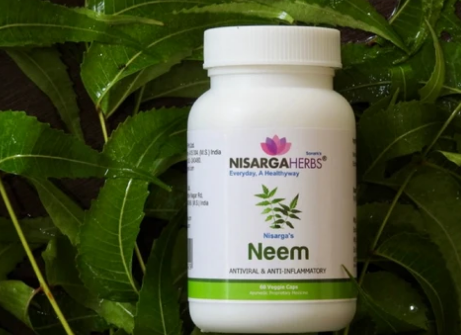Inside BENEO’s new pulse plant: pioneering sustainable protein from faba beans
The study was conducted in 190 participants of aged 18-60 years at ESIC Medical College and Hospital, Faridabad
ESIC Medical College and Hospital, Faridabad and Nisarga Biotech, based in Mumbai, have announced the final data from a pilot, double-blind, randomized, placebo-controlled trial studying prophylactic activity of a proprietary, patent-pending, Neem-leaf extract (Azadirachta Indica A. Juss) of Nisarga Biotech in healthcare personnel and relatives in daily contact with COVID-19 patients.
The study was a planned collaboration of ESIC Medical College and Hospital, Faridabad & All India Institute of Ayurveda (AIIA), New Delhi, and was sponsored by Nisarga Biotech Pvt. Ltd, Satara, MS.
The study was conducted in 190 participants of aged 18-60 years at ESIC Medical College and Hospital, Faridabad, between August to December 2020. The study was approved by the Institutional Ethics Committee and registered at Clinical Trial Registry of India (CTRI) and was conducted in accordance with Good Clinical Practice guidelines and according to all applicable local regulatory and ethical requirements.
Results demonstrated the probability of COVID-19 infection in participants receiving Neem capsules 50 mg twice a day for 28-days was reduced to less than half (a relative risk of 0.45) that of participants receiving the placebo, with the effectiveness of Neem capsules being around 55%. Biomarkers and Quality of life (QOL) remained stable in both groups.
Explaining the significance of the results, Dr. Anil Kumar Pandey, MD, Registrar, ESIC Medical College and Hospital, Faridabad, said, “Ayurveda has immense contribution in prophylaxis of various diseases. These study findings are a leap forward for prophylaxis against the COVID 19 specially when there is no specific treatment available for treatment of Covid-19 infection. I am sure it will work great as a preventive as well as additional protection even during the two doses of vaccination where chances of infection are there. Safety is another critical component for prophylactic measures, and we are encouraged to see that the Neem formulation studied in this study has a better and acceptable safety profile.”

